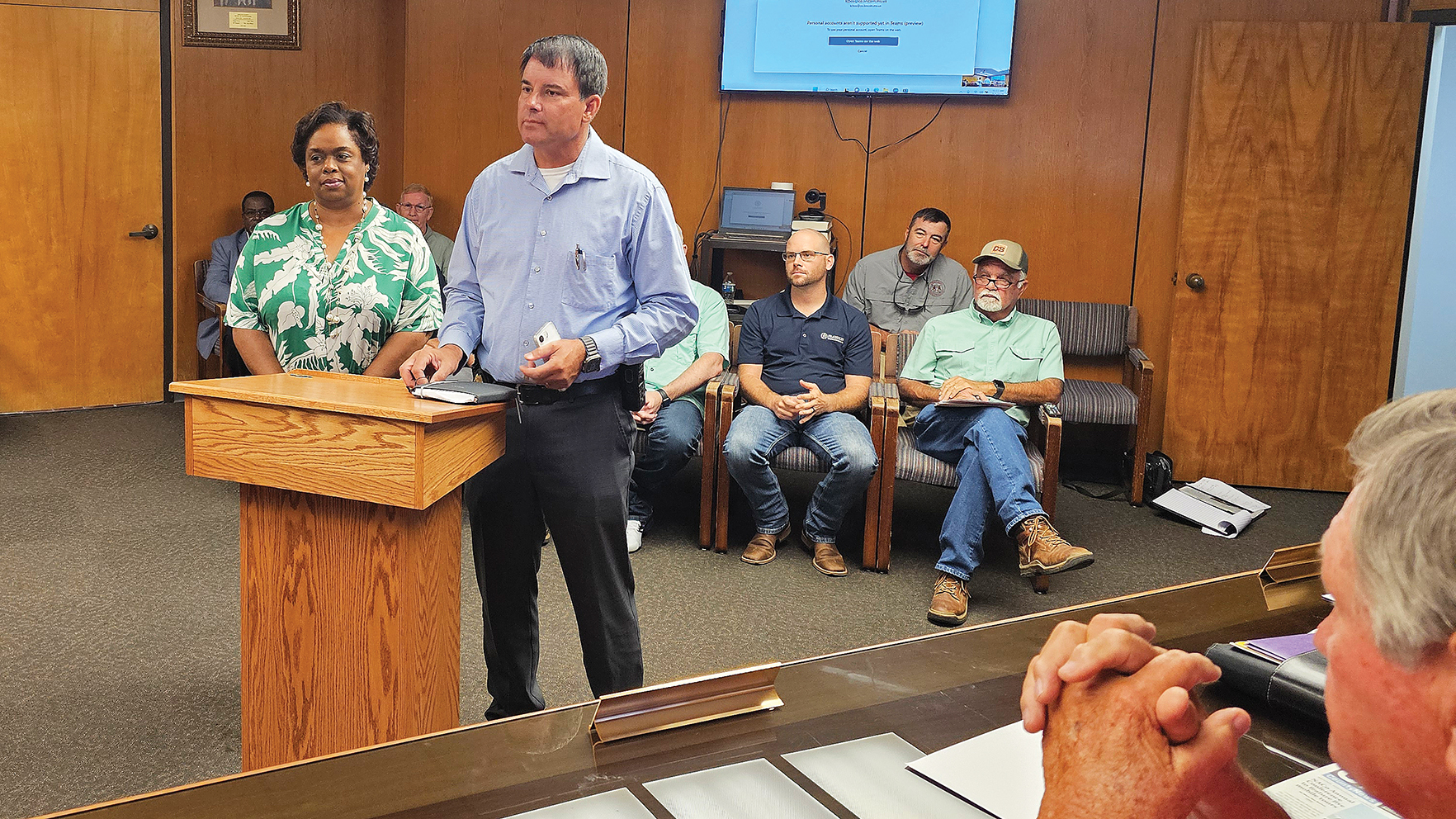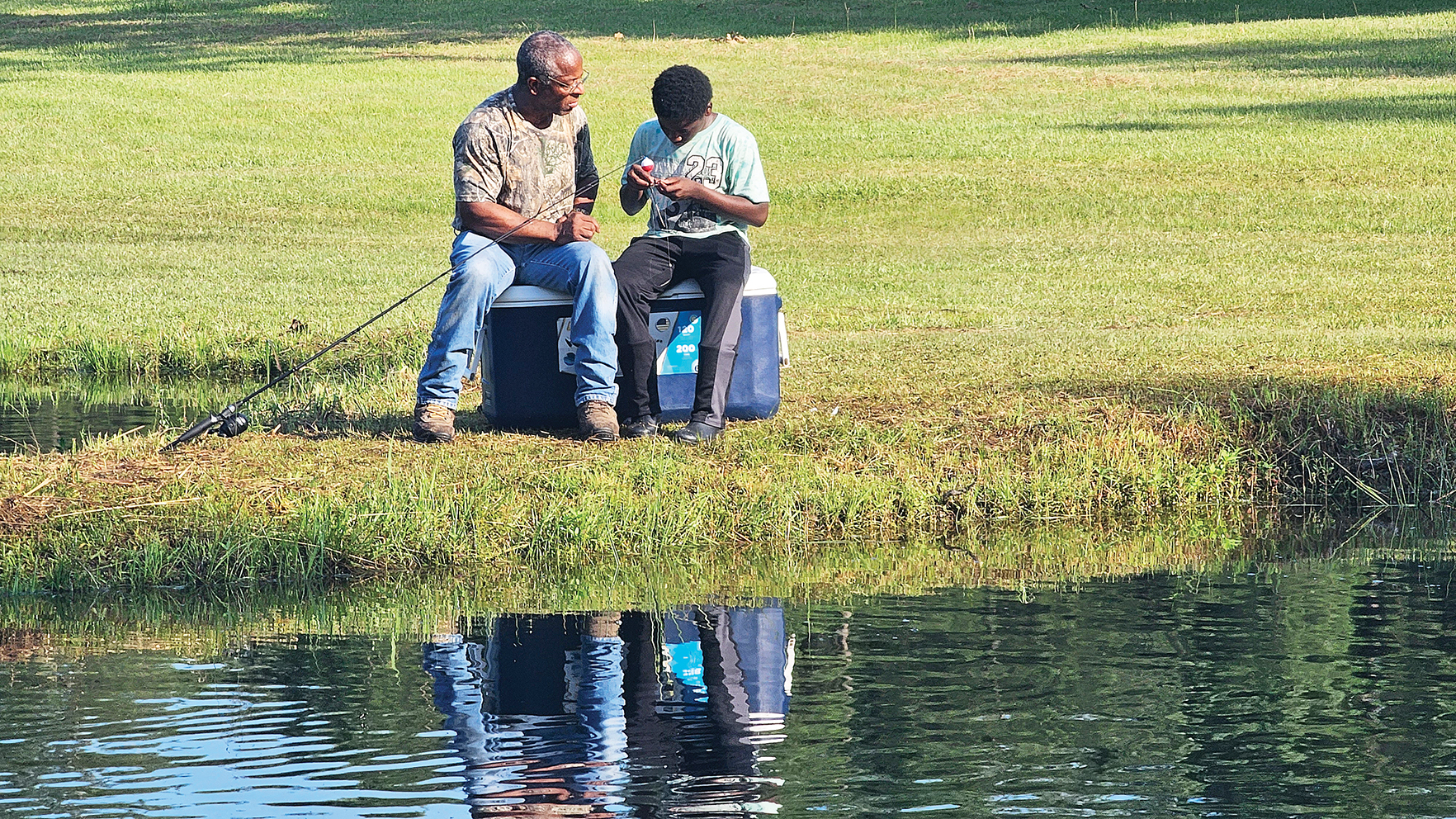Co-Lin students enjoy ‘shocking’ jobs class
Published 5:00 am Friday, September 11, 2009
A few of the Copiah Lincoln Community College students at LakeLincoln on Thursday were a little uneasy at the idea of “shockingthe fish,” worried that it was killing the fish or hurting them insome way.
But Mississippi Department of Environmental Quality biologist AlGibson said in actuality, the fish never have had a problem withthe process that he knows of.
“This is not killing the fish, it just knocks them out so we canpick the ones we want, because we have to be very selective on whatfish we sample,” Gibson said.
Trending
The reason the biologists are taking samples from the fish, hesaid, is to determine the chemistry in the water, and the levels ofpotentially toxic chemicals collected in the tissue of thefish.
“We take a little plug from the fish, put it in a Ziploc bag,put some Neosporin in the hole, and let it go,” he said. “So if youever catch a fish with a little dent in the shoulder, that meanswe’ve been sampling.”
It is through this process that the DEQ can issue warnings abouthigh mercury content in rivers and streams, he told the group.
The Co-Lin students, whom biology instructor Leslie Hood saidare all biology and chemistry students, took the field trip to thelake in order to see how DEQ works. They didn’t just shock thefish, they also got to learn about geology and hazardous materials,as well as learning to sample microorganisms that grow in thebottom of the lake and in the water.
“We’re just letting them see several different careeropportunities,” Hood said. “As science majors, many students don’trealize what possibilities are out there for them in the careerfield.”
And the DEQ employees on site were encouraging as well.
Trending
“Occasionally in the newspaper or a magazine, you’ll see asurvey on job satisfaction,” said DEQ biologist Mike Beiser.”Biologists are right there at the top.”
It’s not just working with fascinating life forms that makes hisjob so enjoyable, Beiser said.
“Where else do you get to wear tennis shoes, T-shirts and shortsto work and still get paid?” he said, laughing.
Meanwhile, at another station, the environmental engineers wereloading Co-Lin student Steven Capistran into an airpack and a bigblue plastic hazardous materials suit, demonstrating theprecautions necessary when dealing with hazmat scenes.
“Why did I let y’all talk me into this?” Capistran said to hisfriends, later commenting, “It’s hot in there.”
The environmental engineers told the group about the drawbacks,like the fact that the air bottle only holds a certain amount ofair. It has to be monitored closely, said DEQ engineer RichardHarrell.
“Can you imagine trying to get yourself out of that suit whenyou’re out of air and covered in nasty stuff?” he said.
And while learning about groundwater, the students got to lookat several pieces of ancient history, including pieces of the spineof a fossilized prehistoric whale that DEQ geologist James Starnessaid was found in Mississippi.
“You realize that means that this whole area used to beunderwater,” he said.
The students passed around a large and heavy bone, and Starneswarned them that though it seemed dense, it was actually veryfragile.
“It’s basically a big heavy piece of bone with the consistencyof a crouton that’s a million years old,” he said.
Hood said the students seemed to enjoy and to respond to thefield trip.
“This is the first time we’ve done this workshop, but we hope todo it every year,” she said. “They’ve had some really goodquestions, and they’ve seemed to enjoy themselves.”
But it wasn’t just the students who enjoyed themselves. Hood gotto ride in the boat with Gibson when they collected the fish.
“I liked the shock boat,” Hood said.





